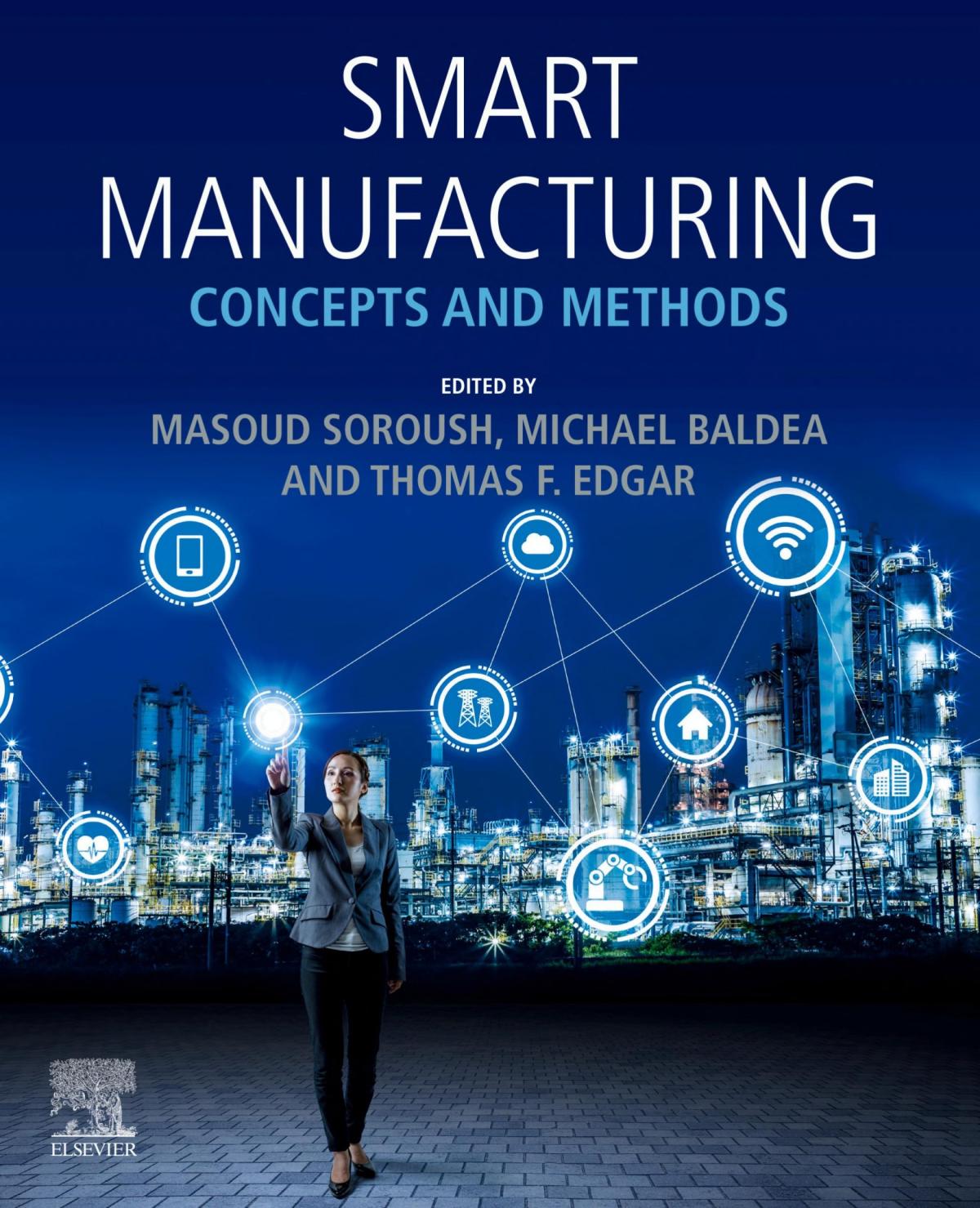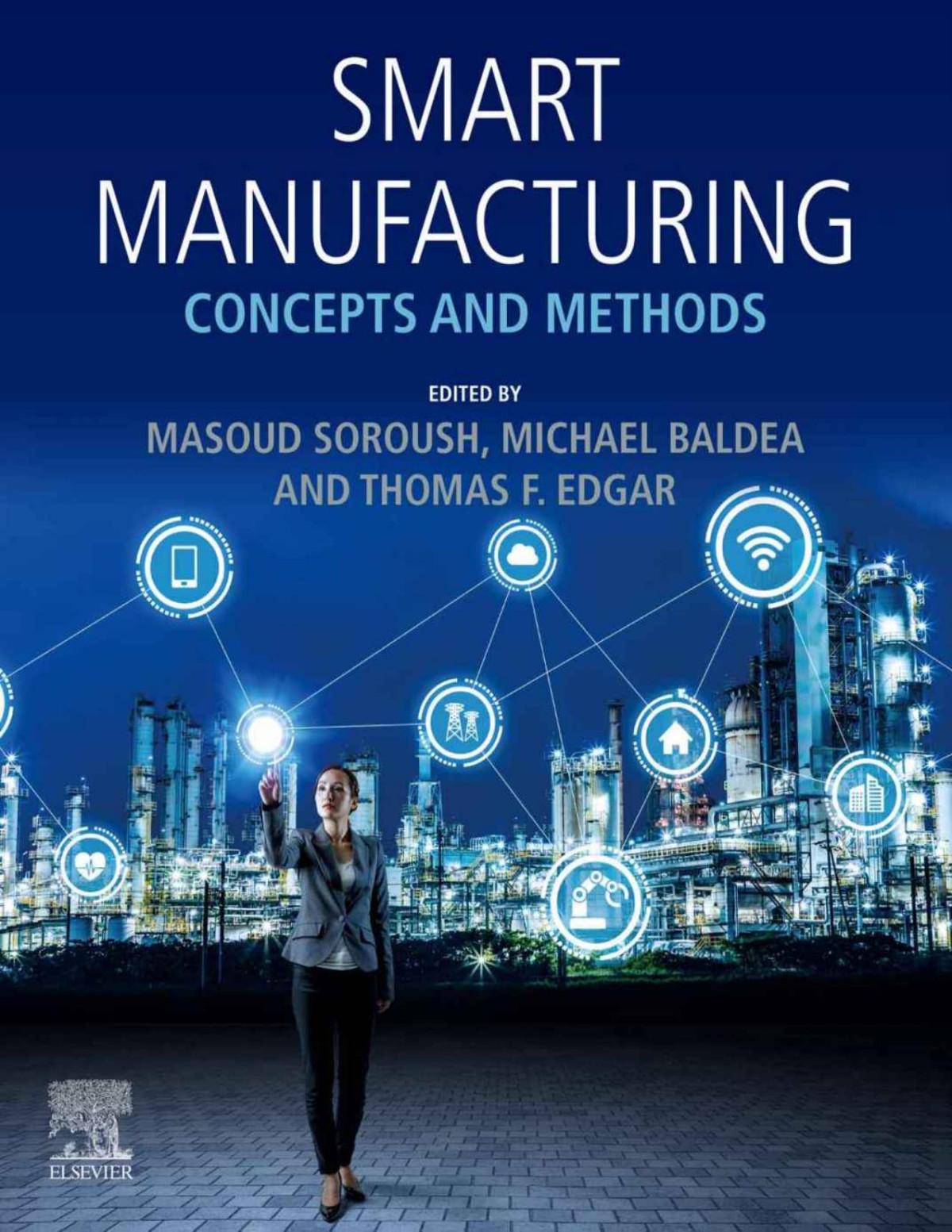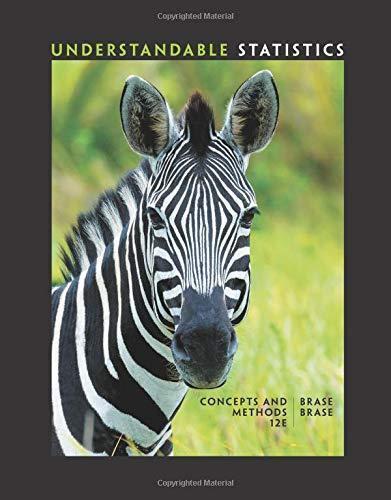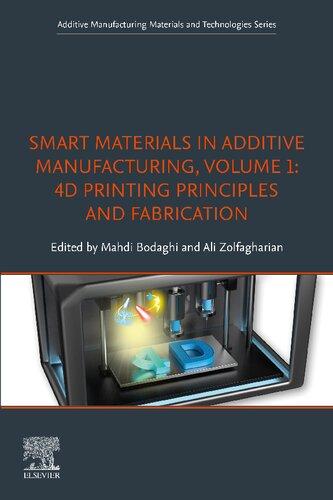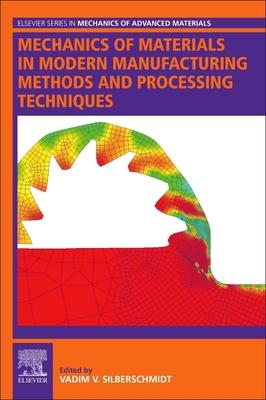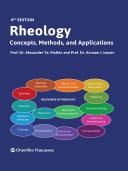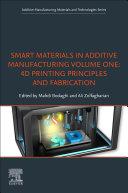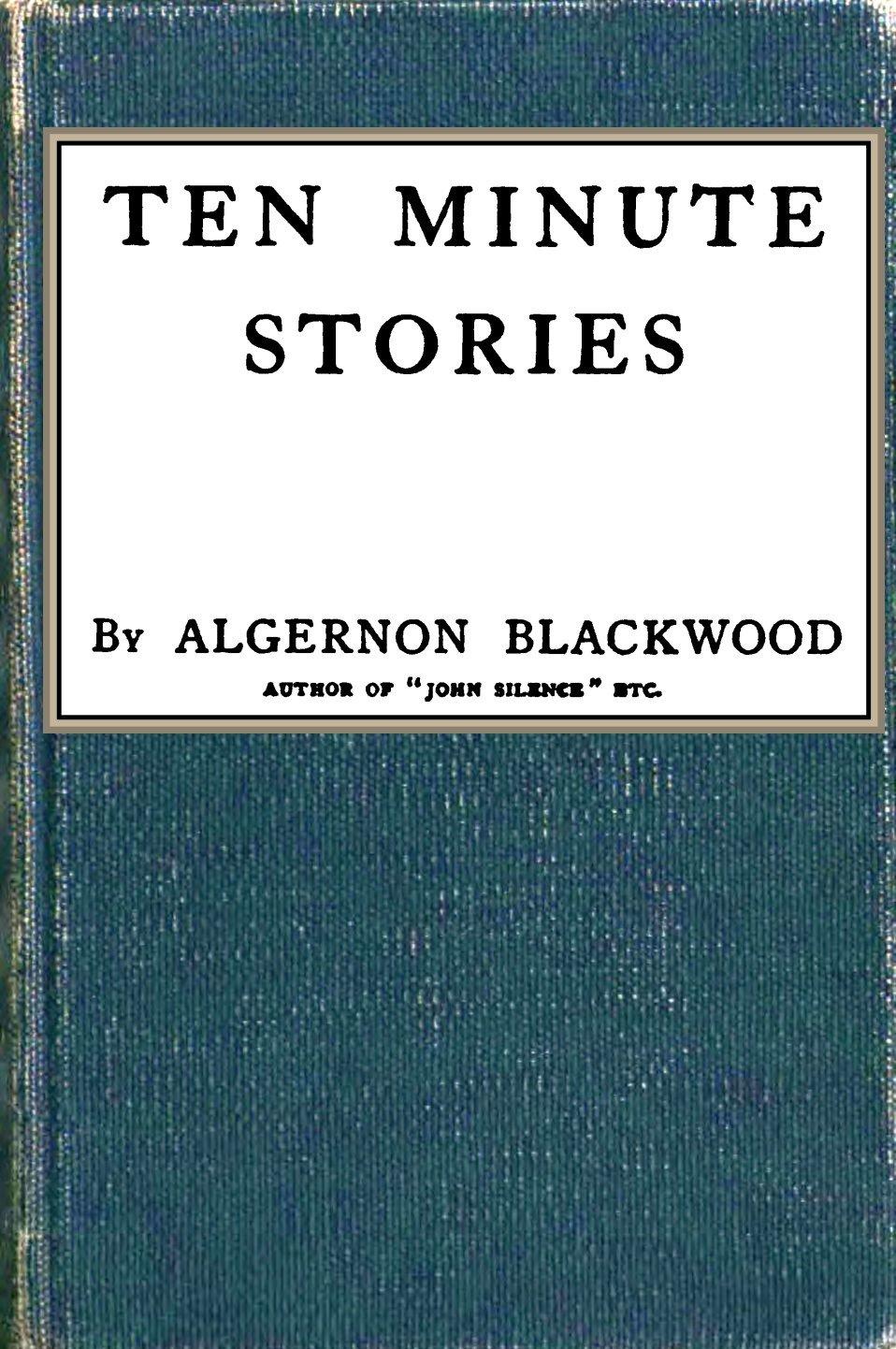SMART MANUFACTURING ConceptsandMethods
Editedby MASOUDSOROUSH
MICHAELBALDEA
THOMASF.EDGAR
Elsevier
Radarweg29,POBox211,1000AEAmsterdam,Netherlands
TheBoulevard,LangfordLane,Kidlington,OxfordOX51GB,UnitedKingdom 50HampshireStreet,5thFloor,Cambridge,MA02139,UnitedStates
©2020ElsevierInc.Allrightsreserved.
Nopartofthispublicationmaybereproducedortransmittedinanyformorbyanymeans,electronicormechanical, includingphotocopying,recording,oranyinformationstorageandretrievalsystem,withoutpermissioninwriting fromthepublisher.Detailsonhowtoseekpermission,furtherinformationaboutthePublisher’spermissionspolicies andourarrangementswithorganizationssuchastheCopyrightClearanceCenterandtheCopyrightLicensingAgency, canbefoundatourwebsite: www.elsevier.com/permissions.
ThisbookandtheindividualcontributionscontainedinitareprotectedundercopyrightbythePublisher(otherthanas maybenotedherein).
Notices
Knowledgeandbestpracticeinthisfieldareconstantlychanging.Asnewresearchandexperiencebroadenour understanding,changesinresearchmethods,professionalpractices,ormedicaltreatmentmaybecomenecessary.
Practitionersandresearchersmustalwaysrelyontheirownexperienceandknowledgeinevaluatingandusingany information,methods,compounds,orexperimentsdescribedherein.Inusingsuchinformationormethodsthey shouldbemindfuloftheirownsafetyandthesafetyofothers,includingpartiesforwhomtheyhaveaprofessional responsibility.
Tothefullestextentofthelaw,neitherthePublishernortheauthors,contributors,oreditors,assumeanyliabilityfor anyinjuryand/ordamagetopersonsorpropertyasamatterofproductsliability,negligenceorotherwise,orfromany useoroperationofanymethods,products,instructions,orideascontainedinthematerialherein.
LibraryofCongressCataloging-in-PublicationData
AcatalogrecordforthisbookisavailablefromtheLibraryofCongress
BritishLibraryCataloguing-in-PublicationData
AcataloguerecordforthisbookisavailablefromtheBritishLibrary
ISBN:978-0-12-820027-8
ForinformationonallElsevierpublications visitourwebsiteat https://www.elsevier.com/books-and-journals
Publisher: SusanDennis
EditorialProjectManager: DevlinPerson
ProductionProjectManager: BharatwajVaratharajan
CoverDesigner: MatthewLimbert
TypesetbySPiGlobal,India
Contributors
MajidMoradiAliabadi DepartmentofChemicalEngineeringandMaterialsScience,WayneStateUniversity,Detroit, MI,UnitedStates
JoseAnaya ElCaminoCommunityCollege,Hawthorne,CA,UnitedStates
JeffreyE.Arbogast AmericanAirLiquide,Newark,DE,UnitedStates;AirLiquide(China)R&DCo.,Ltd., Shanghai,China
StylianiAvraamidou
TexasA&MEnergyInstitute,TexasA&MUniversity,CollegeStation,TX,UnitedStates
MoslemAzamfar
NSFIndustry/UniversityCooperativeResearchCenteronIntelligentMaintenanceSystems (IMS),DepartmentofMechanicalandMaterialsEngineering,UniversityofCincinnati, Cincinnati,OH,UnitedStates
OsvaldoA.Bascur OSBDigital,LLC,TheWoodlands,TX,UnitedStates
B.WayneBequette
DepartmentofChemicalandBiologicalEngineering,RensselaerPolytechnicInstitute,Troy, NY,UnitedStates
MarkBesser CustomerSuccess,SavigentSoftware,Bloomington,MN,UnitedStates
SergioButkewitsch UniversityofPittsburgh,SwansonSchoolofEngineering,DepartmentofIndustrialEngineering, Pittsburgh,PA,UnitedStates
GregColvin
AdditiveManufacturing,HoneywellAerospace—AdvancedTechnology,Phoenix,AZ,United States
JamesDavis UniversityofCaliforniaLosAngeles,CESMII,TheSmartManufacturingInnovationInstitute, LosAngeles,CA,UnitedStates
RichardP.Donovan
SustainableSmartManufacturing,CaliforniaInstituteforTelecommunicationsandInformation Technologies,Irvine,CA,UnitedStates
JohnDyck
UniversityofCaliforniaLosAngeles,CESMII,TheSmartManufacturingInnovationInstitute, LosAngeles,CA,UnitedStates
HelvioMarkmanFilho CircleProcessManagementSystemsLLC,GlenAllen,VA,UnitedStates
JesusFlores-Cerrillo
LindePLC,Tonawanda,NY,UnitedStates
LanceFountaine Cargill,Wayzata,MN,UnitedStates
SambitGhosh
DepartmentofChemicalandBiologicalEngineering,RensselaerPolytechnicInstitute,Troy, NY,UnitedStates
IiroHarjunkoski ABBPowerGridsResearch,Mannheim,Germany
GangshiHu
LindePLC,Tonawanda,NY,UnitedStates
YinlunHuang
DepartmentofChemicalEngineeringandMaterialsScience,WayneStateUniversity,Detroit, MI,UnitedStates
PrakashanKorambath
UniversityofCaliforniaLosAngeles,CESMII,TheSmartManufacturingInnovationInstitute, LosAngeles,CA,UnitedStates
HeikoKoziolek ABBCorporateResearch,Ladenburg,Germany
JayLee
NSFIndustry/UniversityCooperativeResearchCenteronIntelligentMaintenanceSystems (IMS),DepartmentofMechanicalandMaterialsEngineering,UniversityofCincinnati, Cincinnati,OH,UnitedStates
HareshMalkani
UniversityofCaliforniaLosAngeles,CESMII,TheSmartManufacturingInnovationInstitute, LosAngeles,CA,UnitedStates
LeilaSamandariMasooleh
DepartmentofChemicalandBiologicalEngineering,DrexelUniversity,Philadelphia,PA, UnitedStates
LawrenceMegan
LindePLC,Tonawanda,NY,UnitedStates
JimO’Rourke
OSIsoft,LLC,Houston,TX,UnitedStates
GeraldS.Ogumerem
ArtieMcFerrinDepartmentofChemicalEngineering;TexasA&MEnergyInstitute,Texas A&MUniversity,CollegeStation,TX,UnitedStates
UlkuOktem
Near-MissManagement,LLC,Philadelphia,PA,UnitedStates
VibhorPandhare
NSFIndustry/UniversityCooperativeResearchCenteronIntelligentMaintenanceSystems (IMS),DepartmentofMechanicalandMaterialsEngineering,UniversityofCincinnati, Cincinnati,OH,UnitedStates
EfstratiosN.Pistikopoulos
ArtieMcFerrinDepartmentofChemicalEngineering;TexasA&MEnergyInstitute,Texas A&MUniversity,CollegeStation,TX,UnitedStates
J.PieterSchmal
ExxonMobilResearch&Engineering,Annandale,NJ,UnitedStates
DirkSchulz
ABBCorporateResearch,Ladenburg,Germany
WarrenD.Seider
DepartmentofChemicalandBiomolecularEngineering,UniversityofPennsylvania, Philadelphia,PA,UnitedStates
JaskaranSingh
NSFIndustry/UniversityCooperativeResearchCenteronIntelligentMaintenanceSystems (IMS),DepartmentofMechanicalandMaterialsEngineering,UniversityofCincinnati, Cincinnati,OH,UnitedStates;DepartmentofMechanicalEngineering,ThaparInstituteof EngineeringandTechnology,Patiala,Punjab,India
MasoudSoroush
DepartmentofChemicalandBiologicalEngineering,DrexelUniversity,Philadelphia,PA, UnitedStates
JonathanWise UniversityofCaliforniaLosAngeles,CESMII,TheSmartManufacturingInnovationInstitute, LosAngeles,CA,UnitedStates
ShuYang DepartmentofChemicalandBiologicalEngineering,RensselaerPolytechnicInstitute,Troy, NY,UnitedStates
MichaelYost CleanEnergySmartManufacturingInnovationInstitute,LosAngeles,CA,UnitedStates
Preface
Researchanddevelopmenteffortsinthepast10yearshaveledtoconsiderable advancesinconceptsandmethodsinsmartmanufacturing.Thismonographputsthese advancesintoperspectiveandshowshowprocessindustriescanbenefitfromthem.It consolidatesresultsdevelopedbyleadingacademicandindustrialgroupsinthisarea, alongwiththecomputationaltoolsandmethods,andpresentstheminasystematic way.Itprovidescomprehensivecoverageofadvancesinconceptsandmethodologies. Thisbookiscomplementedbythecompani onbookentitled“SmartManufacturing: IndustrialApplicationsandCaseStudies,” whichfocusesonthestate-of-theartapplicationsofsmartmanufacturingconceptsandmethodsinprocessindustries.
Chapter1,Smartmanufacturing:It’sajourney,notadestination,providesanintroductiontosmartmanufacturingandpointstothebroadvisionthatsmartmanufacturing reallyrepresents.Ithighlightstheimportanceofaligningacompanyaroundacommon overarchingvisionofsmartmanufacturing,andthecriticalneedtoestablishacomprehensivestrategytomanageprogressandsuccessthroughouttheongoingjourney.It arguesthatsmartmanufacturingisamatterofcontinuousimprovement,notjustapursuit ofnewtechnology.
Chapter2,Implementingsmartmanufacturingacrossanindustrialorganization,summarizesthefactorsthatshouldbeconsideredinimplementingsmartmanufacturing. Smartmanufacturinghasthepotentialtounlockbillionsofdollarsofoperatingprofit acrosstheindustry.Recentsuccessesoftheauthorsrelatedtothethreepillarsofsmart manufacturingaredescribed:dataanalytics,automation,andconnectivity.
Chapter3,Industrie4.0andinternationalperspective,discussestheGerman-driven initiativeIndustrie4.0andaddressescommonalitiesanddifferences.Itsuggestspossible synergiesandshowshowSmartManufacturingandIndustrie4.0activitiescansupport andcomplementeachother.ItalsoreviewssomeapplicationswithinIndustrie4.0and summarizesthedevelopmentroadmap.
Chapter4,Cyberinfrastructureforthedemocratizationofsmartmanufacturing, discussestheimportanceoftherealignmentofbusiness,leadership,marketandinfrastructureto“democratize”“smart”business,technology,operationalandworkforcedata practicesindustry-wide.Itarguesthatthisdemocratizationisneededtorealizethefull economicpotentialofSmartManufacturing.
Chapter5,Theroleofhardwareandsoftwareinsmartmanufacturing,highlightsand explainstherolesandresponsibilitiesthathardwareandsoftwareplayinsmart manufacturing.Thechapterisaprimeronlegacyandpresent-dayequipment,datathat arecreated,anddatathatareusedinmanufacturingdecisionmaking.
Chapter6,Measuring,managing,andtransformingdataforoperationalinsights,discussestheneedforadata-drivenstrategytoenableoperations,maintenance,andbusiness personneltoquicklyandeasilytakecorrectiveactionswhenabnormalconditionsoccur. Itpresentsasmartunittemplateapproachthattransformsdataintoinformation,classifies theoperatingmodesbasedonthevariancefromtheplantscheduletargets,simplifiesthe analysisandaggregationofproductionandconsumables,andallowsforfasttrackingof lossesbyshift.
Chapter7,Theroleofadvancedprocessmodelinginsmartmanufacturing,discusses thecriticalrolethatmodelingplaysinmanysmartmanufacturingapproaches.Itexplains howfirst-principlesanddata-drivenmodelscanbedevelopedandwhataspectsare involvedtogettoavalidatedmodel,includingdatareconciliation,stateestimation, parameterestimation,designofexperiments,andmodelselection.Itelaboratesonchallengesinon-lineimplementationandmodelreduction.Itdemonstratesdifferentmodelingapproachesusingacasestudy.
Chapter8,IndustrialAIandpredictiveanalyticsforsmartmanufacturingsystems, presentsacomprehensiveoverviewoftheimportantroleofkeyenablingtechnologies ofindustrialartificialintelligenceinthemanufacturingindustryingeneral.Theirsystematicadoptioncanaidinproducingnewvalue-creationopportunitiesandavoidanceof problemsthathavenotevenoccurredyet.
Chapter9,Computationalframeworkforsmartmanufacturingviaparametricoptimizationandcontrol(PAROC),highlightstheneedforefficientcomputationaltechniquestotransformmanufacturingdataintomanufacturingintelligence.It demonstrateshowcomputationalframeworksutilizethefunctionalitiesofanalyticaltools tocreateuniquesolutions.Acasestudyconsidersrefuelingofametalhydridehydrogen storagesystemtodescribehowthePAROCframeworkleverageshigh-fidelitymodeling,systemidentification,andparametricprogrammingtodevelopauniqueoptimal operatingstrategyforthesystem.
Chapter10,Asystemsengineering-drivendecompositionapproachforlarge-scale industrialdecision-makingprocesses,presentsanapproachthatconsidersindustrialproductionstructuresasdynamicstochasticsystems,whosebehaviorvarieswithtime, affectedbybothcontrollableinputsanduncertaintiesfromvarioussources.Torepresent thisbehaviormathematically,itpresentsaframeworkderivedfromthetypicallydesigncentricSystemsEngineeringmethodology,adaptedtowardmanufacturinganditsdigital technologies.Itdemonstratesthisapproachthroughacasestudy.
Chapter11,Model-predictivesafety:Anewevolutioninfunctionalsafety,discusses theneedforinnovationinfunctionalsafetytoensuresafeoperationofintensifiedprocessesinsmartmanufacturing.Itpresentstheconceptandthemaincomponentsofan innovationinfunctionalsafety,namely,model-predictivesafety(MPS),whichunlike conventionalfunctionalsafetysystems,generatesalarmsignalsthatarepredictiveandsystematicallyaccountsforprocessnonlinearitiesandvariableinteractions.Itdescribeshow
inrealtime,MPSdetectspotentialandimminentfutureprocessoperationhazards,and prescribesoptimalpreventiveandmitigatingactionsproactively.Itdemonstratesthe conceptofMPSbyapplyingittoapolymerizationreactorexample.
Chapter12,Inferentialmodelingandsoftsensors,discussestheincreasingrolethat softsensorsareplayinginadvanced(smart)manufacturing.Itdescribestheimpactof softsensorsbasedonhistoricaltrends,andidentifiesfutureopportunitiesaswellasthe characteristicsofprocessdataanditsinfluenceonsoftsensordevelopment.Acomprehensivereviewofbothfirst-principlesanddata-drivenmethodsforsoftsensormodeling, includingstateestimation,principalcomponentanalysis,partialleastsquares,artificial neuralnetworks,andsupportvectormachines,isprovided.
Chapter13,Adecisionsupportframeworkforsustainableandsmartmanufacturing, introducesadecisionsupportframeworkforsustainableandsmartmanufacturing.The frameworkcomprisesadataanalyticsblockthatisresponsibleforbothsustainability assessmentandmonitoringofexternalfactorsthatmayaffectthesustainabilityperformanceofthesysteminitstransitionprocess.Itusesamodelpredictivecontrolstrategy toidentifyandupdateoptimalsustainabilitystrategicplansforachievingshort-to-long termsustainabilitygoals.Itprovidesastructuredstep-by-stepguidetodecisionmakers informulatingandupdatingsustainabilitystrategies.
Chapter14,Smartmanufacturingpedagogyfortheanthropocene,presentsfundamentalprinciplesfromwhichtobuildaholisticframeworkofasmartmanufacturing pedagogyfortheanthropocene.Inspiredbyadata-centricsustainablemanufacturing visionformanufacturing,itdescribeshowfundamentalandemergingcomplexsystem ideasenableconvergenceofbroadperspectivesfromthehumanitiesandsocialsciences intoamodeltoleveragethetoolsofdatascienceandengineering.Itintroducesintriguing newperspectivesfromcomplexsystemsandsustainabilitysciencethatlinkinformation andNewtonianmechanicsinordertocreateadynamicrepositoryofcasestudiesthatcan drivelife-longlearningandsetusonapathtosmartlymanufactureproductsforhealthy livingonahealthyplanet.
Thisbookisexpectedtobecomeareferenceforprocessengineers,managers,and consultantsinprocessindustries,postdoctoralresearchers,graduatestudents,andother researchersinacademia,nationallabs,andprocessindustries.Itsummarizesthemost recentadvancesinsmartmanufacturingconceptsandmethods.Thisbookiscomplementedbythecompanionvolumeentitled“SmartManufacturing:IndustrialApplications andCaseStudies,”whichfocusesonthestate-of-theartapplicationsofsmart manufacturingconceptsandmethodsinprocessindustries.
Smartmanufacturing:It’
Ifyouhaveworkedanywherearoundindustryormanufacturinginthelastseveralyears, youhavealmostcertainlyheardthetremendousamountofbuzzaroundSmart Manufacturing[1,2].Itispossiblethatyoumayhaveseenitreferencedbyadifferent name,perhapsasIndustry4.0,DigitalTransformation,IoT(InternetofThings),DigitalizationandAnalytics,andprobablyafewothers[3]thatIamforgettingtohighlight here.Whateverlabelyouprefer,however,thereisnodoubtingthattheconceptisbeing recognizedasasignificantdisruptiontoourtraditionalmodelofbusiness,production, andoperations.ThevaluepotentialofSmartManufacturingisjusttoobigtoignore.
So,whatdoesthepursuitofSmartManufacturingreallylooklike?Let’sstartbyenvisioningthefuturestateofindustryandmanufacturing.Herearesomecommonelements: •Therewillbeanincreaseinautomation,andareductionofhands-onworkforce[4].
Thistrendhasalreadybeenprogressingoverseveraldecadesandwillcontinuefor
SmartManufacturing
2020ElsevierInc. https://doi.org/10.1016/B978-0-12-820027-8.00001-0
decadestocome.Theneedformanuallaborandhandsonactivitieswillcontinueto decline.
•Roboticsandautonomousequipmentwillreplacepeopleforneededtransport,processmonitoring,andinspection.Thiswillreduceexposuretosafetyrisksandalsohelp reducetheindustryandmanufacturingsizefootprint[5].
•Factorieswillbecomemodularandmobile,makingrelocationmuchsimplerandless costly.Commodityindustrieswillbeclosertosupplychainandsourcesofenergy. Manufacturingwillbedoneclosertotheconsumerreducingtimetomarketand thecostoftransportationandlogistics[6].
•Similartothetrendinautomation,artificialintelligencewillalsostarttobecomea prevalentcapabilityinourproductionandoperationsfacilities.AIwillbegintoreplace traditionalprofessionalrolesinindustryandmanufacturing[5].
•Withimprovedoperationalintelligence,virtualand/orphysicalcentersofexcellences (CoEs)willbeestablishedtomonitororcontrollikeassets.Thiswillmoreeffectively leveragecriticalsubjectmatterexperts(SMEs),enableimprovedknowledgesharing acrossteams,andhelpoffsetriskassociatedwiththelossofkeyresources[7].
•Sustainabilityandconservationwillgobeyondthewallsofindividualcompaniesand starttooptimizeatbothacommunityandglobalenterpriselevel.
•Dataandinformationwillcontinuetobecomeamorevaluableassetinsupportofcontinuousperformanceimprovementandeffectivedecisions[8].
•Digitaltechnologiesandrelatedskillsetswillbeakeyenablerforthefuture.Knowledgeableresourceswillbeinhighdemandacrossallbusinesssectors.
Forsomeperspectiveonhowindustryandmanufacturingwilllikelychange,let’squickly recaphowdigitaltechnologiesarecurrentlydisruptingtransportationacrosstheworld:
•Navigationsystemsarenowavailableonyourmobiledevice.Thisnotonlygivesthe driverstepbystepinstructions,butalsoautomaticallyrerouteswhenunexpected eventsoccur.Thesescenarioscouldincludeaccidents,weather,constructiondelays, lawenforcement,etc.Real-timeintelligenceisnowhelpingdriversoptimizetheir routesandarrivaltimes.
•Althoughnotwidelyadoptedasofyet,autonomousvehiclesareavailableanddriving alongsidehumansonsharedroadways.Autonomouscapabilitiesarealsostartingto impacttransportationandlogistics,andrelateddistributiontrends.
•CompaniessuchasUberandLyfthaveturnedinformationintoabusiness,mapping availabledriverstothosewhoneedrides.Thisnotonlyhelpsreducetrafficandparking needs,butcanalsohelpimprovesafetyontheroads.
•Fleet-wideartificialintelligenceishelpingtooptimizefuelefficiencyandvehiclewear bybetterunderstandingdrivinghabitsandequipmentcondition.
Allofthesecapabilitieswillalsosoonbecomeprevalentinindustryandmanufacturing. Thedisruptionisalreadyunderway.
ThetransitiontowardSmartManufacturingisaprerequisitetothefuture,andfor companieswhotrulywanttosucceed,themostimportantnextstepsaretorecognize whatiscomingandstartprogressingintothechange.Thereisnosilverbulletoreasy buttontogetyoutoyourdestination,insteadtheconceptrequiresajourneyofcontinuousimprovementthatwillbeongoingformanyyearstocome.Tobesuccessful,companyleadershipwillneedtoalignaroundacommonSmartManufacturingvision, committoacomprehensivestrategyforadoption,anddriveongoingdisciplinedexecutionyearafteryearinsupportofthepursuit.Theremainderofthischapterwillhighlight whatIbelievetobethekeyaspectsofthevision,strategy,andexecution.
Fig.1 highlightsacomprehensiveapproachtosupportingtheSmartManufacturing journey.Thevisionrepresentswhereyouaregoinginthejourneyandwhy.Thestrategy representshowyouareintendingtosupportyourjourney.Andfinally,executionrepresentsthespecificprojectstepsyouwilltaketomeetrequiredmilestonesalongtheway.
2.The “SmartManufacturing ” northstarvision
ThefirstcriticalstepintheSmartManufacturingjourneyisestablishingthenorthstar vision.Thepurposeofthisvisionistodrivealignmentaroundwherethecompanyis goingwithitsSmartManufacturingprogramandwhyitisanimportantpursuit.The visionshouldhavestronglinkagetoestablishedcompanyvaluedriversandanyassociated targetobjectives.Typical valuelevers acrossthemanufacturingsupplychaininclude
Fig.1 SmartManufacturing drivenbyvision,strategy,andexecution.
Sustainability—licensetooperate
•Environmentalimpact—minimizeimpactonthecommunitieswhereweoperateand inthemarketsweserve.
•Healthandsafety—zeroharmtoouremployeesandthemarketsweserve.
Supplychain—supplierside
•Riskmanagement—ensureavailabilityandintegrityofsupply.
•Costmanagement—managementofsupplypricing/impactoncustomerpricing.
Manufacturingoperations—costsofgoodssold(controllable)
•Resourcemanagement—optimizationofsupplyresources,includingenergy,water, rawmaterials,people.
•Productivity—increasingproductionvolumeagainstbaselineschedule/costs.
•Assethealth—improvingcriticalassetuptime,reducingrelatedmaintenancecosts,and extendingassetlife.
Supplychain—customerside
•Transportation/logistics—ensuringontimedeliveryandcostcontrol.
•Productquality—zeroreturns/zerocomplaints.
•Productdemand—agilitytomeetevolvingcustomerwantsandneeds.
•Profitability—effectivedecisionsonwhentoenter/exitmarkets.
Inadditiontorecognizingthekeyvaluedriversandrelatedtargetobjectivesfortheorganization,theSmartManufacturingvisionshouldalsooutlinesomeofthecriticalenablers forsuccess.Mostcompaniesarequicktorecognizedigitaltechnologiesasafoundation enabler,butconsiderationshouldalsobegiventotherelatedpeopleandprocessculture changesthatarefundamentalforongoingsuccess.Includedbelowaresomeofthe commoncultureandtechnologyenablers thatsupportSmartManufacturing.
2.1Peopleandprocesscultureenablers
•Rebootofoperationalexcellence/leanmanufacturing—HistoricalOPEXandLEAN programshavealwaysbeenbasedondata.SmartManufacturingwillimprovedataand analyticscapabilitiestofurtherenablecontinuousimprovementinsupportofstable operationsandrelatedstepchangesinperformance.
•Innovationeverywherewithself-service—Easy-to-useSmartManufacturingtools willenableinnovationacrossalllevelsoftheorganization.ShopFloorresourceswill becapableofdevelopingsimplevisualizations,calculations,and/ornotificationsto improvedailyperformance.ProcessEngineersandSupervisorswillbecapableofmore
complexanalytics.BusinessandOperationsSMEswilldevelopandleveragecommon fleetwideanalyticstosupportcontinuousperformanceimprovement.
•Identificationandadoptionofbestpractices/standards—SmartManufacturingtechnologiesandtoolswillenableeasierleverageofdefinedbestpracticesandstandards. Closedloopautonomouscontrolandvalidationofactionsformanualactivitieswill helpensurerelatedcompliance.CoEsorremoteoperationcenters(ROCs)enable betterleverageofSMEsanddriveimprovedstabilityandperformanceresults.
•Enterprisevisibilityandintelligence—SmartManufacturingwillprovidecommon context(digitaltwins)acrosslikeassetstosupportinternalandexternalbenchmarking. Business/enterpriseKPIsandmetricswilldriveongoingperformancedialogtoaddress currentpainpointsandopportunities.
•Investigationofcomplexproblemsorscenarios—Asspecificcomplexproblemsor scenariosareidentified,newSmartManufacturingtoolsanddatasciencewillenable complexanalysistobetterunderstandrelatedcorrelationsandtrendsthroughmachine learningandartificialintelligence.Themostadvancedtoolswillbecapableofprocessingwhatifscenariosinsupportofprescriptiveanalytics.
•Connectedpartnersandsuppliers—Criticalrelationshipswillbegintoevolveto deliverfurthervaluethroughthesharingofinformation.Datawillbeleveragedacross organizationalboundariesforimprovedvisibilityintothesupplychainandtogain knowledgeandinsightfromexternalprocessormanufacturingtechnologyexperts.
2.2Technologyenablers(sometimesdefinedbytechnologymegatrends)
•Networkconnectivity—Technologydevelopmentshaveovercomedataconnectivity challengesandbandwidthconstraints.Dataarereadilyavailableandaccessissecured.
•Digitalinfrastructure—Datacollection,storage,andintegrationisenabledthrougha robustdistributeddigitalinfrastructure.Servers,databases,andapplicationsoftwareare common,highavailability,andmaintainedtomeetfunctionalityandsecurityrequirements.Thedigitalinfrastructureisacriticalassetthatisconstantlybeingimprovedfor betterperformance,easiermaintenance,andlowercosts.Somecurrenttrendsinclude edge,cloud,andIT-OTconvergence.
•Instrumentationandmonitoring—Newtechnologieshaveevolvedthatmakesensors/measuringdevicesbothhighlycapableandlowcost.Thesetechnologiescan operateindependentlyorwithsomelevelofassociatedintelligence.Somecommon capabilitiesandtermsincludeIoT/IIoT,visionsystems,edgedevices,drones/ crawlers,etc.
•Automationandcontrol—Automationofequipmentandtaskscontinuestoevolve. Thisnotonlyincludescommonlogicoperationandsequencing,butalsoanincreasing levelofawarenessanddecisionmaking.Relatedoutcomesimprovequality,efficiency,andsafety.
Another random document with no related content on Scribd:
The Project Gutenberg eBook of Ten minute stories
This ebook is for the use of anyone anywhere in the United States and most other parts of the world at no cost and with almost no restrictions whatsoever. You may copy it, give it away or re-use it under the terms of the Project Gutenberg License included with this ebook or online at www.gutenberg.org. If you are not located in the United States, you will have to check the laws of the country where you are located before using this eBook.
Title: Ten minute stories
Author: Algernon Blackwood
Release date: February 11, 2024 [eBook #72928]
Language: English
Original publication: London: John Murray, 1914
Credits: Emmanuel Ackerman, Chuck Greif and the Online Distributed Proofreading Team at https://www.pgdp.net (This book was produced from images made available by the HathiTrust Digital Library.) *** START OF THE PROJECT GUTENBERG EBOOK TEN MINUTE STORIES ***
TEN MINUTE STORIES
CONTENTS
TRANSCRIBER'S NOTE
TEN MINUTE STORIES
B� ALGERNON BLACKWOOD
AUTHOR OF “JOHN SILENCE” ETC.
NEW YORK
E. P. DUTTON AND COMPANY PUBLISHERS
F���� E������ February 1914
Reprinted February 1914
All rights reserved
PREFATORY NOTE
T�� Author wishes to thank the Editors of the Morning Post, the Westminster Gazette, and Country Life for permission to reprint in this volume stories originally published in their papers.
ACCESSORY BEFORE THE FACT
A� the moorland cross-roads Martin stood examining the sign-post for several minutes in some bewilderment. The names on the four arms were not what he expected, distances were not given, and his map, he concluded with impatience, must be hopelessly out of date. Spreading it against the post, he stooped to study it more closely. The wind blew the corners flapping against his face. The small print was almost indecipherable in the fading light. It appeared, however—as well as he could make out—that two miles back he must have taken the wrong turning.
He remembered that turning. The path had looked inviting; he had hesitated a moment, then followed it, caught by the usual lure of walkers that it “might prove a short cut.” The short-cut snare is old as human nature. For some minutes he studied the sign-post and the map alternately. Dusk was falling, and his knapsack had grown heavy. He could not make the two guides tally, however, and a feeling of uncertainty crept over his mind. He felt oddly baffled, frustrated. His thought grew thick. Decision was most difficult. “I’m muddled,” he thought; “I must be tired,” as at length he chose the most likely arm. “Sooner or later it will bring me to an inn, though not the one I intended.” He accepted his walker’s luck, and started briskly. The arm read, “Over Litacy Hill” in small, fine letters that danced and shifted every time he looked at them; but the name was not discoverable on the map. It was, however, inviting like the short cut. A similar impulse again directed his choice. Only this time it seemed more insistent, almost urgent.
And he became aware, then, of the exceeding loneliness of the country about him. The road for a hundred yards went straight, then curved like a white river running into space; the deep blue-green of heather lined the banks, spreading upwards through the twilight; and occasional small pines stood solitary here and there, all unexplained. The curious adjective, having made its appearance, haunted him. So many things that afternoon were similarly—unexplained: the short cut, the darkened map, the names on the sign-post, his own erratic impulses, and the growing strange confusion that crept upon his spirit. The entire country-side needed explanation, though
perhaps “interpretation” was the truer word. Those little lonely trees had made him see it. Why had he lost his way so easily? Why did he suffer vague impressions to influence his direction? Why was he here—exactly here? And why did he go now “over Litacy Hill”?
Then, by a green field that shone like a thought of daylight amid the darkness of the moor, he saw a figure lying in the grass. It was a blot upon the landscape, a mere huddled patch of dirty rags, yet with a certain horrid picturesqueness too; and his mind—though his German was of the schoolroom order—at once picked out the German equivalents as against the English. Lump and Lumpen flashed across his brain most oddly. They seemed in that moment right, and so expressive, almost like onomatopœic words, if that were possible of sight. Neither “rags” nor “rascal” would have fitted what he saw. The adequate description was in German.
Here was a clue tossed up by the part of him that did not reason. But it seems he missed it. And the next minute the tramp rose to a sitting posture and asked the time of evening. In German he asked it. And Martin, answering without a second’s hesitation, gave it, also in German, “halb sieben”—half-past six. The instinctive guess was accurate. A glance at his watch when he looked a moment later proved it. He heard the man say, with the covert insolence of tramps, “T’ank you; much opliged.” For Martin had not shown his watch—another intuition subconsciously obeyed.
He quickened his pace along that lonely road, a curious jumble of thoughts and feelings surging through him. He had somehow known the question would come, and come in German. Yet it flustered and dismayed him. Another thing had also flustered and dismayed him. He had expected it in the same queer fashion: it was right. For when the ragged brown thing rose to ask the question, a part of it remained lying on the grass—another brown, dirty thing. There were two tramps. And he saw both faces clearly. Behind the untidy beards, and below the old slouch hats, he caught the look of unpleasant, clever faces that watched him closely while he passed. The eyes followed him. For a second he looked straight into those eyes, so that he could not fail to know them. And he understood, quite horridly, that both faces were too sleek, refined, and cunning for those of ordinary tramps. The men were not really tramps at all. They were disguised.
“How covertly they watched me!” was his thought, as he hurried along the darkening road, aware in dead earnestness now of the loneliness and
desolation of the moorland all about him.
Uneasy and distressed, he increased his pace. Midway in thinking what an unnecessarily clanking noise his nailed boots made upon the hard white road, there came upon him with a rush together the company of these things that haunted him as “unexplained.” They brought a single definite message: That all this business was not really meant for him at all, and hence his confusion and bewilderment; that he had intruded into someone else’s scenery, and was trespassing upon another’s map of life. By some wrong inner turning he had interpolated his person into a group of foreign forces which operated in the little world of someone else. Unwittingly, somewhere, he had crossed the threshold, and now was fairly in—a trespasser, an eavesdropper, a Peeping Tom. He was listening, peeping; overhearing things he had no right to know, because they were intended for another. Like a ship at sea he was intercepting wireless messages he could not properly interpret, because his Receiver was not accurately tuned to their reception. And more—these messages were warnings!
Then fear dropped upon him like the night. He was caught in a net of delicate, deep forces he could not manage, knowing neither their origin nor purpose. He had walked into some huge psychic trap elaborately planned and baited, yet calculated for another than himself. Something had lured him in, something in the landscape, the time of day, his mood. Owing to some undiscovered weakness in himself he had been easily caught. His fear slipped easily into terror.
What happened next happened with such speed and concentration that it all seemed crammed into a moment. At once and in a heap it happened. It was quite inevitable. Down the white road to meet him a man came swaying from side to side in drunkenness quite obviously feigned—a tramp; and while Martin made room for him to pass, the lurch changed in a second to attack, and the fellow was upon him. The blow was sudden and terrific, yet even while it fell Martin was aware that behind him rushed a second man, who caught his legs from under him and bore him with a thud and crash to the ground. Blows rained then; he saw a gleam of something shining; a sudden deadly nausea plunged him into utter weakness where resistance was impossible. Something of fire entered his throat, and from his mouth poured a thick sweet thing that choked him. The world sank far away into darkness.... Yet through all the horror and confusion ran the trail of two clear thoughts: he realised that the first tramp had sneaked at a fast
double through the heather and so come down to meet him; and that something heavy was torn from fastenings that clipped it tight and close beneath his clothes against his body....
Abruptly then the darkness lifted, passed utterly away. He found himself peering into the map against the sign-post. The wind was flapping the corners against his cheek, and he was poring over names that now he saw quite clear. Upon the arms of the sign-post above were those he had expected to find, and the map recorded them quite faithfully. All was accurate again and as it should be. He read the name of the village he had meant to make—it was plainly visible in the dusk, two miles the distance given. Bewildered, shaken, unable to think of anything, he stuffed the map into his pocket unfolded, and hurried forward like a man who has just wakened from an awful dream that had compressed into a single second all the detailed misery of some prolonged, oppressive nightmare.
He broke into a steady trot that soon became a run; the perspiration poured from him; his legs felt weak, and his breath was difficult to manage. He was only conscious of the overpowering desire to get away as fast as possible from the sign-post at the cross-roads where the dreadful vision had flashed upon him. For Martin, accountant on a holiday, had never dreamed of any world of psychic possibilities. The entire thing was torture. It was worse than a “cooked” balance of the books that some conspiracy of clerks and directors proved at his innocent door. He raced as though the countryside ran crying at his heels. And always still ran with him the incredible conviction that none of this was really meant for himself at all. He had overheard the secrets of another. He had taken the warning for another into himself, and so altered its direction. He had thereby prevented its right delivery. It all shocked him beyond words. It dislocated the machinery of his just and accurate soul. The warning was intended for another, who could not—would not—now receive it.
The physical exertion, however, brought at length a more comfortable reaction and some measure of composure. With the lights in sight, he slowed down and entered the village at a reasonable pace. The inn was reached, a bedroom inspected and engaged, and supper ordered with the solid comfort of a large Bass to satisfy an unholy thirst and complete the restoration of balance. The unusual sensations largely passed away, and the odd feeling that anything in his simple, wholesome world required explanation was no longer present. Still with a vague uneasiness about him,
though actual fear quite gone, he went into the bar to smoke an after-supper pipe and chat with the natives, as his pleasure was upon a holiday, and so saw two men leaning upon the counter at the far end with their backs towards him. He saw their faces instantly in the glass, and the pipe nearly slipped from between his teeth. Clean-shaven, sleek, clever faces—and he caught a word or two as they talked over their drinks—German words. Well dressed they were, both men, with nothing about them calling for particular attention; they might have been two tourists holiday-making like himself in tweeds and walking-boots. And they presently paid for their drinks and went out. He never saw them face to face at all; but the sweat broke out afresh all over him, a feverish rush of heat and ice together ran about his body; beyond question he recognised the two tramps, this time not disguised—not yet disguised.
He remained in his corner without moving, puffing violently at an extinguished pipe, gripped helplessly by the return of that first vile terror. It came again to him with an absolute clarity of certainty that it was not with himself they had to do, these men, and, further, that he had no right in the world to interfere. He had no locus standi at all; it would be immoral ... even if the opportunity came. And the opportunity, he felt, would come. He had been an eavesdropper, and had come upon private information of a secret kind that he had no right to make use of, even that good might come —even to save life. He sat on in his corner, terrified and silent, waiting for the thing that should happen next.
But night came without explanation. Nothing happened. He slept soundly. There was no other guest at the inn but an elderly man, apparently a tourist like himself. He wore gold-rimmed glasses, and in the morning Martin overheard him asking the landlord what direction he should take for Litacy Hill. His teeth began then to chatter and a weakness came into his knees. “You turn to the left at the cross-roads,” Martin broke in before the landlord could reply; “you’ll see the sign-post about two miles from here, and after that it’s a matter of four miles more.” How in the world did he know, flashed horribly through him. “I’m going that way myself,” he was saying next; “I’ll go with you for a bit—if you don’t mind!” The words came out impulsively and ill-considered; of their own accord they came. For his own direction was exactly opposite. He did not want the man to go alone. The stranger, however, easily evaded his offer of companionship. He thanked him with the remark that he was starting later in the day.... They
were standing, all three, beside the horse-trough in front of the inn, when at that very moment a tramp, slouching along the road, looked up and asked the time of day. And it was the man with the gold-rimmed glasses who told him.
“T’ank you; much opliged,” the tramp replied, passing on with his slow, slouching gait, while the landlord, a talkative fellow, proceeded to remark upon the number of Germans that lived in England and were ready to swell the Teutonic invasion which he, for his part, deemed imminent.
But Martin heard it not. Before he had gone a mile upon his way he went into the woods to fight his conscience all alone. His feebleness, his cowardice, were surely criminal. Real anguish tortured him. A dozen times he decided to go back upon his steps, and a dozen times the singular authority that whispered he had no right to interfere prevented him. How could he act upon knowledge gained by eavesdropping? How interfere in the private business of another’s hidden life merely because he had overheard, as at the telephone, its secret dangers? Some inner confusion prevented straight thinking altogether. The stranger would merely think him mad. He had no “fact” to go upon.... He smothered a hundred impulses ... and finally went on his way with a shaking, troubled heart.
The last two days of his holiday were ruined by doubts and questions and alarms—all justified later when he read of the murder of a tourist upon Litacy Hill. The man wore gold-rimmed glasses, and carried in a belt about his person a large sum of money. His throat was cut. And the police were hard upon the trail of a mysterious pair of tramps, said to be—Germans.
THE DEFERRED APPOINTMENT
T�� little “Photographic Studio” in the side-street beyond Shepherd’s Bush had done no business all day, for the light had been uninviting to even the vainest sitter, and the murky sky that foreboded snow had hung over London without a break since dawn. Pedestrians went hurrying and shivering along the pavements, disappearing into the gloom of countless ugly little houses the moment they passed beyond the glare of the big electric standards that lit the thundering motor-buses in the main street. The first flakes of snow, indeed, were already falling slowly, as though they shrank from settling in the grime. The wind moaned and sang dismally, catching the ears and lifting the shabby coat-tails of Mr. Mortimer Jenkyn, “Photographic Artist,” as he stood outside and put the shutters up with his own cold hands in despair of further trade. It was five minutes to six.
With a lingering glance at the enlarged portrait of a fat man in masonic regalia who was the pride and glory of his window-front, he fixed the last hook of the shutter, and turned to go indoors. There was developing and framing to be done upstairs, not very remunerative work, but better, at any rate, than waiting in an empty studio for customers who did not come— wasting the heat of two oil-stoves into the bargain. And it was then, in the act of closing the street-door behind him, that he saw a man standing in the shadows of the narrow passage, staring fixedly into his face.
Mr. Jenkyn admits that he jumped. The man was so very close, yet he had not seen him come in; and in the eyes was such a curiously sad and appealing expression. He had already sent his assistant home, and there was no other occupant of the little two-storey house. The man must have slipped past him from the dark street while his back was turned. Who in the world could he be, and what could he want? Was he beggar, customer, or rogue?
“Good evening,” Mr. Jenkyn said, washing his hands, but using only half the oily politeness of tone with which he favoured sitters. He was just going to add “sir,” feeling it wiser to be on the safe side, when the stranger shifted his position so that the light fell directly upon his face, and Mr. Jenkyn was
aware that he—recognised him. Unless he was greatly mistaken, it was the second-hand bookseller in the main street.
“Ah, it’s you, Mr. Wilson!” he stammered, making half a question of it, as though not quite convinced. “Pardon me; I did not quite catch your face —er—I was just shutting up.” The other bowed his head in reply. “Won’t you come in? Do, please.”
Mr. Jenkyn led the way. He wondered what was the matter. The visitor was not among his customers; indeed, he could hardly claim to know him, having only seen him occasionally when calling at the shop for slight purchases of paper and what not. The man, he now realised, looked fearfully ill and wasted, his face pale and haggard. It upset him rather, this sudden, abrupt call. He felt sorry, pained. He felt uneasy.
Into the studio they passed, the visitor going first as though he knew the way, Mr. Jenkyn noticing through his flurry that he was in his “Sunday best.” Evidently he had come with a definite purpose. It was odd. Still without speaking, he moved straight across the room and posed himself in front of the dingy background of painted trees, facing the camera. The studio was brightly lit. He seated himself in the faded arm-chair, crossed his legs, drew up the little round table with the artificial roses upon it in a tall, thin vase, and struck an attitude. He meant to be photographed. His eyes, staring straight into the lens, draped as it was with the black velvet curtain, seemed, however, to take no account of the Photographic Artist. But Mr. Jenkyn, standing still beside the door, felt a cold air playing over his face that was not merely the winter cold from the street. He felt his hair rise. A slight shiver ran down his back. In that pale, drawn face, and in those staring eyes across the room that gazed so fixedly into the draped camera, he read the signature of illness that no longer knows hope. It was Death that he saw.
In a flash the impression came and went—less than a second. The whole business, indeed, had not occupied two minutes. Mr. Jenkyn pulled himself together with a strong effort, dismissed his foolish obsession, and came sharply to practical considerations. “Forgive me,” he said, a trifle thickly, confusedly, “but I—er—did not quite realise. You desire to sit for your portrait, of course. I’ve had such a busy day, and—’ardly looked for a customer so late.” The clock, as he spoke, struck six. But he did not notice the sound. Through his mind ran another reflection: “A man shouldn’t ’ave
his picture taken when he’s ill and next door to dying. Lord! He’ll want a lot of touching-up and finishin’, too!”
He began discussing the size, price, and length—the usual rigmarole of his “profession,” and the other, sitting there, still vouchsafed no comment or reply. He simply made the impression of a man in a great hurry, who wished to finish a disagreeable business without unnecessary talk. Many men, reflected the photographer, were the same; being photographed was worse to them than going to the dentist. Mr. Jenkyn filled the pauses with his professional running talk and patter, while the sitter, fixed and motionless, kept his first position and stared at the camera. The photographer rather prided himself upon his ability to make sitters look bright and pleasant; but this man was hopeless. It was only afterwards Mr. Jenkyn recalled the singular fact that he never once touched him—that, in fact, something connected possibly with his frail appearance of deadly illness had prevented his going close to arrange the details of the hastily assumed pose.
“It must be a flashlight, of course, Mr. Wilson,” he said, fidgeting at length with the camera-stand, shifting it slightly nearer; while the other moved his head gently yet impatiently in agreement. Mr. Jenkyn longed to suggest his coming another time when he looked better, to speak with sympathy of his illness; to say something, in fact, that might establish a personal relation. But his tongue in this respect seemed utterly tied. It was just this personal relation which seemed impossible of approach— absolutely and peremptorily impossible. There seemed a barrier between the two. He could only chatter the usual professional commonplaces. To tell the truth, Mr. Jenkyn thinks he felt a little dazed the whole time—not quite his usual self. And, meanwhile, his uneasiness oddly increased. He hurried. He, too, wanted the matter done with and his visitor gone.
At length everything was ready, only the flashlight waiting to be turned on, when, stooping, he covered his head with the velvet cloth and peered through the lens—at no one! When he says “at no one,” however, he qualifies it thus: “There was a quick flash of brilliant white light and a face in the middle of it—my gracious Heaven! But such a face—’im, yet not ’im —like a sudden rushing glory of a face! It shot off like lightning out of the camera’s field of vision. It left me blinded, I assure you, ’alf blinded, and that’s a fac’. It was sheer dazzling!”
It seems Mr. Jenkyn remained entangled a moment in the cloth, eyes closed, breath coming in gasps, for when he got clear and straightened up again, staring once more at his customer over the top of the camera, he stared for the second time at—no one. And the cap that he held in his left hand he clapped feverishly over the uncovered lens. Mr. Jenkyn staggered ... looked hurriedly round the empty studio, then ran, knocking a chair over as he went, into the passage. The hall was deserted, the front door closed. His visitor had disappeared “almost as though he hadn’t never been there at all”—thus he described it to himself in a terrified whisper. And again he felt the hair rise on his scalp; his skin crawled a little, and something put back the ice against his spine.
After a moment he returned to the studio and somewhat feverishly examined it. There stood the chair against the dingy background of trees; and there, close beside it, was the round table with the flower vase. Less than a minute ago Mr. Thomas Wilson, looking like death, had been sitting in that very chair. “It wasn’t all a sort of dreamin’, then,” ran through his disordered and frightened mind. “I did see something ...!” He remembered vaguely stories he had read in the newspapers, stories of queer warnings that saved people from disasters, apparitions, faces seen in dream, and so forth. “Maybe,” he thought with confusion, “something’s going to ’appen to me!” Further than that he could not get for some little time, as he stood there staring about him, almost expecting that Mr. Wilson might reappear as strangely as he had disappeared. He went over the whole scene again and again, reconstructing it in minutest detail. And only then, for the first time, did he plainly realise two things which somehow or other he had not thought strange before, but now thought very strange. For his visitor, he remembered, had not uttered a single word, nor had he, Mr. Jenkyn, once touched his person.... And, thereupon, without more ado, he put on his hat and coat and went round to the little shop in the main street to buy some ink and stationery which he did not in the least require.
The shop seemed all as usual, though Mr. Wilson himself was not visible behind the littered desk. A tall gentleman was talking in low tones to the partner. Mr. Jenkyn bowed as he went in, then stood examining a case of cheap stylographic pens, waiting for the others to finish. It was impossible to avoid overhearing. Besides, the little shop had distinguished customers sometimes, he had heard, and this evidently was one of them. He only understood part of the conversation, but he remembers all of it. “Singular,
yes, these last words of dying men,” the tall man was saying, “very singular. You remember Newman’s: ‘More light,’ wasn’t it?” The bookseller nodded. “Fine,” he said, “fine, that!” There was a pause. Mr. Jenkyn stooped lower over the pens. “This, too, was fine in its way,” the gentleman added, straightening up to go; “the old promise, you see, unfulfilled but not forgotten. Cropped up suddenly out of the delirium. Curious, very curious! A good, conscientious man to the last. In all the twenty years I’ve known him he never broke his word....”
A motor-bus drowned a sentence, and then was heard in the bookseller’s voice, as he moved towards the door: “...You see, he was half-way down the stairs before they found him, always repeating the same thing, ‘I promised the wife, I promised the wife.’ And it was a job, I’m told, getting him back again ... he struggled so. That’s what finished him so quick, I suppose. Fifteen minutes later he was gone, and his last words were always the same, ‘I promised the wife’....”
The tall man was gone, and Mr. Jenkyn forgot about his purchases. “When did it ’appen?” he heard himself asking in a voice he hardly recognised as his own. And the reply roared and thundered in his ears as he went down the street a minute later to his house: “Close on six o’clock—a few minutes before the hour. Been ill for weeks, yes. Caught him out of bed with high fever on his way to your place, Mr. Jenkyn, calling at the top of his voice that he’d forgotten to see you about his picture being taken. Yes, very sad, very sad indeed.”
But Mr. Jenkyn did not return to his studio. He left the light burning there all night. He went to the little room where he slept out, and next day gave the plate to be developed by his assistant. “Defective plate, sir,” was the report in due course; “shows nothing but a flash of light—uncommonly brilliant.” “Make a print of it all the same,” was the reply. Six months later, when he examined the plate and print, Mr. Jenkyn found that the singular streaks of light had disappeared from both. The uncommon brilliance had faded out completely as though it had never been there.
THE PRAYER
T���� was a glitter in the eye of O’Malley when they met. “I’ve got it!” he said under his breath, holding out a tiny phial with the ominous red label.
“Got what?” asked Jones, as though he didn’t know. Both were medical students; both of a speculative and adventurous turn of mind as well; the Irishman, however, ever the leader in mischief.
“The stuff!” was the reply. “The recipe the Hindu gave me. Your night’s free, isn’t it? Mine, too. We’ll try it. Eh?”
They eyed the little bottle with its shouting label—Poison. Jones took it up, fingered it, drew the cork, sniffed it. “Ugh!” he exclaimed, “it’s got an awful smell. Don’t think I could swallow that!”
“You don’t swallow it,” answered O’Malley impatiently. “You sniff it up through the nose—just a drop. It goes down the throat that way.”
“Irish swallowing, eh?” laughed Jones uneasily. “It looks wicked to me.” He played with the bottle, till the other snatched it away.
“Look out, man! Begad, there’s enough there to kill a Cabinet Minister, or a horse. It’s the real stuff, I tell you. I told him it was for a psychical experiment. You remember the talk we had that night——”
“Oh, I remember well enough. But it’s not worth while in my opinion. It will only make us sick.” He said it almost angrily. “Besides, we’ve got enough hallucinations in life already without inducing others——”
O’Malley glanced up quickly. “Nothing of the sort,” he snapped. “You’re backing out. You swore you’d try it with me if I got it. The effect——”
“Well, what is the effect?”
The Irishman looked keenly at him. He answered very low. Evidently he said something he really believed. There was gravity, almost solemnity, in his voice and manner.
“Opens the inner sight,” he whispered darkly. “Makes you sensitive to thoughts and thoughtforces.” He paused a moment, staring hard into the other’s eyes. “For instance,” he added slowly, earnestly, “if somebody’s thinking hard about you, I should twig it. See? I should see the thought-
stream getting at you—influencing you—making you do this and that. The air is full of loose and wandering thoughts from other minds. I should see these thoughts hovering about your mind like flies trying to settle. Understand? The cause of a sudden change of mood in a man, an inspiration, a helping thought—a temptation——!”
“Bosh!”
“Are you afraid?”
“No. But it’s a poisonous doctrine—that such experiments are worth while even if—if——”
But O’Malley knew his pal.... They took the prescribed dose together, laughing, scoffing, hoping. Then they went out to dine. “We must eat very little,” explained the Irishman. “The stomach must be comparatively empty. And drink nothing at all.”
“What a bore!” said Jones, who was always hungry, and usually thirsty. The prescribed hour passed between the taking of the dose and dinner. They felt nothing more than what Jones described as a “beastly uncomfortable sort of inner heat.”
Opposite them, at a table alone, sat a small man, over-dressed according to their standards, and wearing diamond rings. His face had a curious mixture of refinement and wickedness—like a man naturally sensitive whom circumstances, indulgence, or some special temptation had led astray. He did not notice their somewhat close attention because, in his turn, he was closely watching—somebody else. He ate and drank soberly, but drew his dinner out. The “somebody else” he watched, obviously enough, was a country couple, up probably for the festivities due to the presence of a foreign Potentate in town. They were bewildered by big London. They carried hand-bags. From time to time the old man fingered his breastpocket. He looked about him nervously. The be-ringed man was kind to them, lent them his newspaper, passed the salt, gave them scraps of favoured, kind, and sympathetic conversation. He was very gentle with them.
“Feel anything yet?” asked O’Malley for the tenth time, noticing a curious, passing look on his companion’s face. “I don’t feel a blessed thing meself! I believe that chemist fooled me, gave me diluted stuff or something——” He stopped short, caught by the other’s eye. They had
been dining very sparingly, much to the disgust of the waiter, who wanted their table for more remunerative customers.
“I do feel something, yes,” was the quiet reply. “Or, rather, I see something. It’s odd; but I really do——”
“What? Out with it! Tell me!”
“A sort of wavy line of gold,” said Jones calmly, “gold and shining. And sometimes it’s white. It flits about that fellow’s head—that fellow over there.” He indicated the man with the rings. “Almost as if—it were trying to get into him——”
“Bosh!” said O’Malley, who was ever the last to believe in the success of his own experiments. “You swear it?”
The other’s face convinced him, and a thrill went down his Irish spine.
“Hush,” said Jones in a lower tone, “don’t shout. I see it right enough. It’s like a little wavy stream of light. It’s going all about his head and eyes. By gad, it’s lovely, though—it’s like a flower now, a floating blossom—and now a strip of thin soft gold. It’s got him! By George, I tell you, it’s got him ——!”
“Got him?” echoed the Irishman, genuinely impressed.
“Got into him, I meant. It’s disappeared—gone clean into his head. Look!”
O’Malley looked hard, but saw nothing. “Me boy!” he cried, “the stuff was real. It’s working. Watch it. I do believe you’ve seen a thought—a thought from somebody else—a wandering thought. It’s got into his mind. It may affect his actions, movements, decisions. Good Lord! The stuff was not diluted, after all. You’ve seen a thought-force!” He was tremendously excited. Jones, however, was too absorbed in what he saw to feel excitement. Whether it was due to the drug or not, he knew he saw a real thing.
“Wonder if it’s a good one or a bad one!” whispered the Irishman. “Wonder what sort of mind it comes from! Where? How far away?” He wondered a number of things. He chattered below his breath like a dying gramophone. But his companion just sat, staring in rapt silence.
“What are you doing here?” said a voice from the table behind them quietly. And O’Malley, turning—Jones was too preoccupied—recognised a
plain-clothes detective whom he chanced to know from having been associated with him in a recent poisoning case.
“Nothing particular; just having dinner,” he answered. “And you?”
The detective made no secret of his object. “Watching the crowds for their own safety,” he said, “that’s all. London’s full of prey just now—all up from the country, with their bags in their hands, their money in their breastpockets, and good-natured folks ready everywhere to help ’em, and help themselves at the same time.” He laughed, nodding towards the man with the rings. “All the crooks are on the job,” he added significantly. “There’s an old friend of ours. He doesn’t know me, but I know him right enough. He’s usually made up as a clergyman; and to-night he’s after that old couple at the nex’ table, or my name ain’t Joe Leary! Don’t stare, or he’ll notice.” He turned his head the other way.
O’Malley, however, was far too interested in hoping for a psychical experience of his own, and in watching the “alleged phenomena” of his companion, to feel much interest in a mere detective’s hunt for pickpockets. He turned towards his friend again. “What’s up now?” he asked, with his back to the detective; “see anything more?”
“It’s perfectly wonderful,” whispered Jones softly. “It’s out again. I can see the gold thread, all shining and alive, clean down in the man’s mind and heart, then out, then in again. It’s making him different—I swear it is. By George, it’s like a blessed chemical experiment. I can’t explain it as I see it, but he’s getting sort of bright within—golden like the thread.” Jones was wrought up, excited, moved. It was impossible to doubt his earnestness. He described a thing he really saw. O’Malley listened with envy and resentment.
“Blast it all!” he exclaimed. “I see nothing. I didn’t take enough!” And he drew the little phial out of his pocket.
“Look! He’s changed!” exclaimed Jones, interrupting the movement so suddenly that O’Malley dropped the phial and it smashed to atoms against the iron edge of the umbrella-stand. “His thought’s altered. He’s going out. The gold has spread all through him——!”
“By gosh!” put in O’Malley, so loud that people stared, “it’s helped him —made him a better man—turned him from evil. It’s that blessed wandering thought! Follow it, follow it! Quick!” And in the general confusion that came with the paying of bills, cleaning up the broken glass,
and the rest, the “crook” slipped out into the crowd and was lost, the detective murmured something about “wonder what made him leave so good a trail!” and the Irishman filled in the pauses with hurried, nervous sentences—“Keep your eye on the line of gold! We’ll follow it! We’ll trace it to its source. Never mind the tip! Hurry, hurry! Don’t lose it!”
But Jones was already out, drawn by the power of his obvious conviction. They went into the street. Regardless of the blaze of lights and blur of shadows, the noise of traffic and the rush of the crowds, they followed what Jones described as the “line of wavy gold.”
“Don’t lose it! For Heaven’s sake, don’t lose it!” O’Malley cried, dodging with difficulty after the disappearing figure. “It’s a genuine thought-force from another mind. Follow it! Trace it! We’ll track it to its source—some noble thinker somewhere—some gracious woman—some exalted, golden source, at any rate!” He was wholly caught away now by the splendour of the experiment’s success. A thought that could make a criminal change his mind must issue from a radiant well of rare and purest thinking. He remembered the Hindu’s words: “You will see thoughts in colour—bad ones, lurid and streaked—good ones, sweet and shining, like a line of golden light—and if you follow, you may trace them to the mind that sent them out.”
“It goes so fast!” Jones called back, “I can hardly keep up. It’s in the air, just over the heads of the crowd. It leaves a trail like a meteor. Come on, come on!”
“Take a taxi,” shouted the Irishman. “It’ll escape us!” They laughed, and panted, dodged past the stream of people, crossed the street.
“Shut up!” answered Jones. “Don’t talk so much. I lose it when you talk. It’s in my mind. I really see it, but your chatter blurs it. Come on, come on!”
And so they came at last to the region of mean streets, where the traffic was less, the shadows deeper, the lights dim, streets that visiting Emperors do not change. No match-sellers, bootlace venders, or “dreadful shadows proffering toys,” blocked their way on the pavement edge, because here were none to buy.
“It’s changed from gold to white,” Jones whispered breathlessly. “It shines now—by gad, it shines—like a bit of escaped sunrise. And others
have joined it. Can’t you see ’em? Why, they’re like a network. They’re rays—rays of glory. And—hullo!—I see where they come from now! It’s that house over there. Look, man, look! They’re streaming like a river of light out of that high window, that little attic window up there”—he pointed to a dingy house standing black against the murk of the sky. “They come out in a big stream, and then separate in all directions. It’s simply wonderful!”
O’Malley gasped and panted. He said nothing. Jones, the phlegmatic, heavy Jones, had got a real vision, whereas he who always imagined “visions” got nothing. He followed the lead. Jones, he understood, was taking his instinct where it led him. He would not interfere.
And the instinct led him to the door. They stopped dead, hesitating for the first time. “Better not go in, you know,” said O’Malley, breaking the decision he had just made. Jones looked up at him, slightly bewildered. “I’ve lost it,” he whispered, “lost the line——” A taxi-cab drew up with a rattling thunder just in front and a man got out, came up to the door and stood beside them. It was the crook.
For a second or two the three men eyed each other. Clearly the new arrival did not recognise them. “Pardon, gentlemen,” he said, pushing past to pull the bell. They saw his rings. The taxi boomed away down the little dark street that knew more of coal-carts than of motors. “You’re coming in?” the man asked, as the door opened and he stepped inside. O’Malley, usually so quick-witted, found no word to say, but Jones had a question ready. The Irishman never understood how he asked it, and got the answer, too, without giving offence. The instinct guided him in choice of words and tone and gesture—somehow or other. He asked who lived upstairs in the front attic room, and the man, as he quietly closed the door upon them, gave the information—“My father.”
And, for the rest, all they ever learnt—by a little diligent inquiry up and down the street, engineered by Jones—was that the old man, bedridden for a dozen years, was never seen, and that an occasional district-visitor, or such like, were his only callers. But they all agreed that he was good. “They do say he lies there praying day and night—jest praying for the world.” It was the grocer at the corner who told them that.
STRANGE DISAPPEARANCE OF A BARONET
H�� intrinsic value before the Eternities was exceedingly small, but he possessed most things the world sets store by—presence, name, wealth— and, above all, that high opinion of himself which saves it the bother of a separate and troublesome valuation. Outside these possessions he owned nothing of permanent value, or that could decently claim to be worthy of immortality. The fact was he had never even experienced that expansion of self commonly known as generosity. No apology, however, is necessary for his amazing adventure, for these same Eternities who judged him have made their affidavit that it was They who stripped him bare and showed himself—to himself.
It all began with the receipt of that shattering letter from his solicitors. He read and re-read it in his comfortable first-class compartment as the express hurried him to town, exceedingly comfortable among his rugs and furs, exceedingly distressed and ill at ease in his mind. And in his private sitting-room of the big hotel that same evening Mr. Smirles, more odious even than his letter, informed him plainly that this new and unexpected claimant to his title and estates was likely to be exceedingly troublesome —“even dangerous, Sir Timothy! I am bound to say, since you ask me, that it might be wise to regard the future—er—with a different scale of vision than the one you have been accustomed to.”
Sir Timothy practically collapsed. Instinctively he perceived that the lawyer’s manner already held less respect: the reflection was a shock to his vain and fatuous personality. “After all, then, it wasn’t me he worshipped, but my position, and so forth ...!” If this nonsense continued he would be no longer “Sir Timothy,” but simply “Mister” Puffe, poor, a nobody. He seemed to shrink in size as he gazed at himself in the mirror of the gorgeous, flamboyantly decorated room. “It’s too preposterous and absurd! There’s nothing in it! Why, the whole County would go to pieces without me!” He even thought of making his secretary draft a letter to the Times—a letter of violent, indignant protest.
He was a handsome, portly man, with a full-blown vanity justified by no single item of soul or mind; not unkind, so much as empty; created and kept alive by the small conventions and the ceaseless contemplation of himself, the withdrawal of which might be expected to leave him flat as a popped balloon.... Such a mass of pompous conceit obscured his vision that he only slowly took in the fact that his very existence was at stake. His thoughts rumbled on without direction, the sense of loss, however, dreadfully sharp and painful all the time, till at length he sought relief in something he could really understand. He changed for dinner! He would dine in his sitting-room alone. And, meanwhile, he rang for the remainder of his voluminous luggage. But it was vastly annoying to his diminishing pride to discover that the gorgeous Head Porter (he remembered now having vaguely recognised him in the hall) was the same poor relation to whom he had denied help a year ago. The vicissitudes of life were indeed preposterous. He ought to have been protected from so ridiculous an encounter. For the moment, of course, he merely pretended not to see him—certainly he did not commend the excellently quick delivery of the luggage. And to praise the young fellow’s pluck never occurred to him for one single instant.
“The house valet, please,” he asked of the waiter who answered the bell soon afterwards—and then directed somewhat helplessly the unpacking of his emporium of exquisite clothes. “Yes, take everything out—everything,” he said in reply to the man’s question—rather an extraordinary, almost insolent question when he came to reflect upon it, surely: “Is it worth while, perhaps, sir ...?” It flashed across his dazed mind that the Head Porter had made the very same remark to his subordinate in the passage when he asked if “everything” was to come in. With a shrug of his gold-braided shoulders that poor relation had replied, “Seems hardly worth while, but they may as well all go in, yes.”
And, with the double rejoinder perplexingly in his mind, Sir Timothy turned sharply upon the valet.
But the thing he was going to say faded on his lips. The man, holding out in his arms a heap of clothes, suits and what not, seemed so much taller than before. Sir Timothy had looked down upon him a moment ago, whereas now their eyes stared level. It was passing strange.
“Will you want these, sir?”
“Not to-night, of course.”
“Want them at all, I meant, sir?”
Sir Timothy gasped. “Want them at all? Of course! What in the world are you talking about?”
“Beg pardon, sir. Didn’t know if it was worth while now,” the man said, with a quick flush. And, before the pompous and amazed baronet could get any words between his quivering lips, the man was gone. The waiter, Head Waiter it was, answered the bell almost immediately, and Sir Timothy found consolation for his injured feelings in discussing food and wine. He ordered an absurdly sumptuous meal for a man dining alone. He did so with a vague feeling that it would spite somebody, perhaps; he hardly knew whom. “The Pol Roger well iced, mind,” he added with a false importance as the clever servant withdrew. But at the door the man paused and turned, as though he had not heard. “Large bottle, I said,” repeated the other. The Head Waiter made an extraordinary gesture of indifference. “As you wish, Sir Timothy, as you wish!” And he was gone in his turn. But it was only the man’s adroitness that had chosen the words instead of those others: “Is it really worth while?”
And at that very moment, while Sir Timothy stood there fuming inwardly over the extraordinary words and ways of these people—veiled insolence, he called it—the door opened, and a tall young woman poked her head inside, then followed it with her person. She was dignified, smart even for a hotel like this, and uncommonly pretty. It was the upper housemaid. Full in the eye she looked at him. In her face was a kind of swift sympathy and kindness; but her whole presentment betrayed more than anything else —terror.
“Make an effort, make an effort!” she whispered earnestly. “Before it’s too late, make an effort!” And she was gone. Sir Timothy, hardly knowing what he meant to do, opened the door to dash after her and make her explain this latest insolence. But the passage was dark, and he heard the swish of skirts far away—too far away to overtake; while running along the walls, as in a whispering gallery, came the words, “Make an effort, make an effort!”
“Confound it all, then, I will!” he exclaimed to himself, as he stumbled back into the room, feeling horribly bewildered. “I will make an effort.” And he dressed to go downstairs and show himself in the halls and drawingrooms, give a few pompous orders, assert himself, and fuss about generally.
But that process of dressing without his valet was chiefly and weirdly distressing because he had so amazingly—dwindled. His sight was, of course, awry; disordered nerves had played tricks with vision, proportion, perspective; something of the sort must explain why he seemed so small to himself in the reflection. The pier-glass, which showed him full length, he turned to the wall. But, none the less, to complete his toilet, he had to stand upon a footstool before the other mirror above the mantelpiece.
And go downstairs he did, his heart working with a strange and increasing perplexity. Yet, wherever he went, there came that poor relation, the Head Porter, to face him. Always big, he now looked bigger than ever. Sir Timothy Puffe felt somehow ridiculous in his presence. The young fellow had character, pluck, some touch of intrinsic value. For all his failure in life, the Eternities considered him real. He towered rather dreadfully in his gold braid and smart uniform—towered in his great height all about the hall, like some giant in his own palace. The other’s head scarcely came up to his great black belt where the keys swung and jangled.
The Baronet went upstairs again to his room, strangely disconcerted. The first thing he did as he left the lift was to stumble over the step. The liftman picked him up as though he were a boy. Down the passage, now well lighted, he went quickly, his feet almost pattering, his tread light, and—so oddly short. His importance had gone. A voice behind each door he passed whispered to him through the narrow crack as it cautiously opened, “Make an effort, make an effort! Be yourself, be real, be alive before it’s too late!” But he saw no one, and the first thing he did on entering his room was to hide the smaller mirror by turning it against the wall, just as he had done to the pier-glass. He was so painfully little and insignificant now. As the externals and the possessions dropped away one by one in his thoughts, the revelation of the tiny little centre of activity within was horrible. He puffed himself out in thought as of old, but there was no response. It was degrading.
The fact was—he began to understand it now—his mind had been pursuing possible results of his loss of title and estates to their logical conclusion. The idea in all its brutal nakedness, of course, hardly reached him—namely, that, without possessions, he was practically—nil! All he grasped was that he was—less. Still, the notion did prey upon him atrociously. He followed the advice of the strange housemaid and “made an effort,” but without marked success. So empty, indeed, was his life that,
once stripped of the possessions, he would stand there as useless and insignificant as an ownerless street dog. And the thought appalled him. He had not even enough real interest in others to hold him upright, and certainly not enough sufficiency of self, good or evil, to stand alone before any tribunal. The discovery shocked him inexpressibly. But what distressed him still more was to find a fixed mirror in his sitting-room that he could not take down, for in its depths he saw himself shrunken and dwindled to the proportions of a....
The knock at the door and the arrival of his dinner broke the appalling train of thought, but rather than be seen in his present diminutive appearance—later, of course, he would surely grow again—he ran into the bedroom. And when he came out again after the waiter’s departure he found that his dinner shared the same abominable change. The food upon the dishes was reduced to the minutest proportions—the toast like children’s, the soup an egg-cupful, the tenderloin a little slice the size of a visitingcard, and the bird not much larger than a blackbeetle. And yet more than he could eat; more than sufficient! He sat in the big chair positively lost, his feet dangling. Then, mortified, frightened, and angry beyond expression, he undressed and concealed himself beneath the sheets and blankets of his bed.
“Of course I’m going mad—that’s what it all means,” he exclaimed. “I’m no longer of any account in the world. I could never go into my Club, for instance, like this!”—and he surveyed the small outline that made a little lump beneath the surface of the bed-clothes—“or read the lessons having to stand upon a chair to reach the lectern.” And tears of bleeding vanity and futile wrath mingled upon his pillow.... The humiliation was agonising.
In the middle of which the door opened and in came the hotel valet, bearing before him upon a silver salver what at first appeared to be small, striped sandwiches, darkish in hue, but upon closer inspection were seen to be several wee suits of clothes, neatly pressed and folded for wearing. Glancing round the room and perceiving no one, the man proceeded to put them away in the chest of drawers, soliloquising from time to time as he did so.
“So the old buffer did go out after all!” he reflected, as he smoothed the tiny trousers in the drawer. “ ’E’s nothing but a gas-bag, anyway! Close with the coin, too—always was that!” He whistled, spat in the grate, hunted about for a cigarette, and again found relief in speech. My little dawg’s
